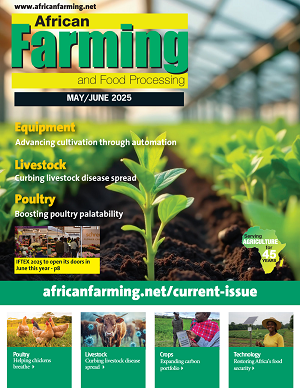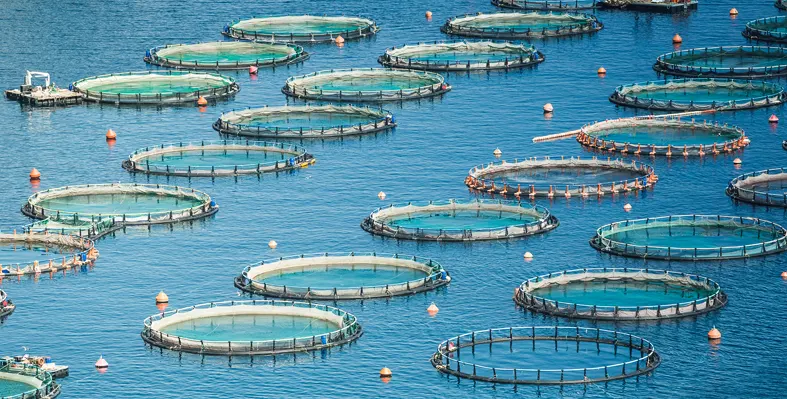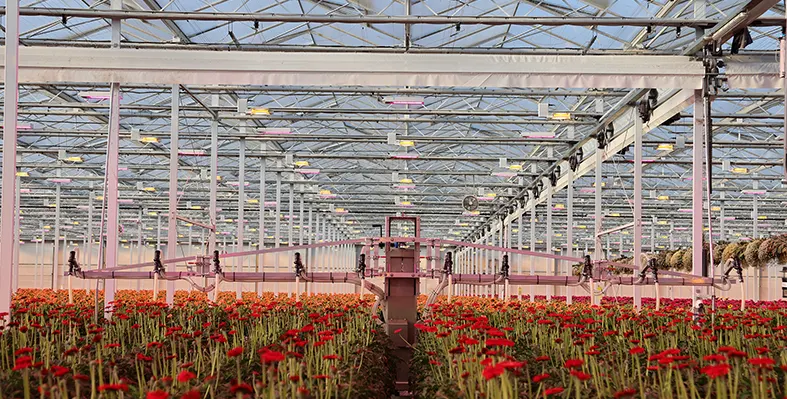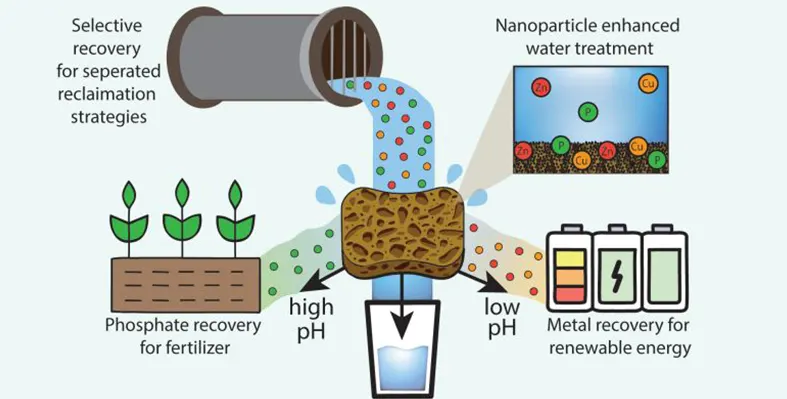In The Spotlight

Aviagen is investing in local breeding stock production within Saudi Arabia. (Image source: Adobe Stock)
Aviagen is continuing to enhance its supply chain and its ‘global reach, local touch’ strategy by investing in a Grandparent (GP) operation for the production and distribution of Parent Stock (PS) in the Kingdom of Saudi Arabia (KSA)
This is a fully-owned Aviagen investment and the project is currently in the early stages of development.
Aviagen continues to recognise the strategic requirement for local, dedicated supply bases to ensure that Aviagen and all of our customers are best prepared to meet the increasing demand for poultry meat in this important, growing region. This investment will create a regional distribution hub for Aviagen brands, strengthening security of supply, and enhancing our ability to serve customers in KSA from a dedicated supply base within the region.
Saudi Arabia and the wider Gulf region present significant opportunities for the growth of poultry production and consumption. Aviagen is proud to support this development by investing in local breeding stock production within the Kingdom, aligning closely with Saudi Arabia’s Vision 2030 goals. With its strategic location and strong potential for industry growth, Saudi Arabia is an ideal location for this investment, providing access to key neighboring Gulf markets.
Tom Exley, President, Aviagen TMEA commented, “This strategic initiative reflects our ongoing commitment to the region, enabling us to deliver greater value to our customers through enhanced security of supply and tailored customer support. By investing locally, Aviagen is helping to strengthen the poultry industry and contribute to the region’s food security and economic development goals.”
The 15th edition of the Africa PPP Summit (#APPP2025) will be held from 28 to 31 October 2025 at the Hilton Hotel, Windhoek, Namibia
As Africa's largest infrastructure finance and partnership event, it aims to drive private sector investment in key sectors like Electricity, Transport, Water and sanitation, and Industrial infrastructure. This summit will gather industry leaders to explore public-private partnerships (PPPs) as vital drivers of sustainable growth across the continent.
Held in Namibia, a country known for its strong infrastructure and investment-friendly policies, APPP2025 will highlight Namibia's strategic position as a logistics hub, with world-class roads, ports, and rail networks. The Namibia Investment Promotion and Development Board, supported by the Office of the President, is the event's host, alongside AME Trade Ltd.
Over four days, the event will feature a conference with interactive discussions, a masterclass on capacity building, and site visits to key infrastructure projects. Topics will include Namibia's infrastructure plans, energy access (solar, wind, hydro), transport connectivity, water scarcity solutions, and regulatory changes to boost African economies. APPP2025 is an essential gathering for investors, policymakers, and industry leaders to network and collaborate on shaping Africa's infrastructure future. It promises to be a pivotal moment for economic growth through strategic infrastructure development.
Eric Muuga, Kenya's water and irrigation cabinet secretary explained to senators the reasons behind the delay in the construction of the Sh42.3 billion Thwake Dam
He cited the Russia-Ukraine war and the COVID-19 pandemic as factors affecting progress. Muuga faced skepticism from lawmakers, especially Makueni Senator Daniel Maanzo, who questioned how these events impacted a project that stalled a year ago.
Muuga argued that the war caused a shortage of explosives needed for the dam’s foundation, while the pandemic led to a reduced workforce. He also mentioned that challenges with the dam’s height and the weak foundation required additional construction work. Kitui Senator Enoch Wambua expressed doubt about the contractor’s presence on-site, recalling an experience where excuses related to Covid-19 and later the Ukraine war were used for delays.
Muuga clarified that Thwake Dam is designed to be the largest rock-filled dam in Kenya, with a capacity of 688 million cubic metres. He stressed the importance of allowing time for the foundation’s embankment to settle to prevent future issues, stating that this settlement could take six to nine months. The cost breakdown reveals that the African Development Bank is providing Sh35. 6 billion, and the Kenyan government is contributing Sh6.71 billion.
Initially scheduled for fulfillment in December last year, the project is now set for completion by October 30, 2025. Upon completion, the dam will supply water to 1.3 million people, generate 20 megawatts of hydropower, and irrigate 100,000 acres, benefiting various areas in both Makueni and Kitui counties.
Tickets are now on sale for Agritechnica 2025, the world’s largest trade fair for agricultural machinery, taking place from 9-15 November in Hanover, Germany
Organised by the DLG (German Agricultural Society), this year’s show is set to welcome around 430,000 visitors and 2,700 exhibitors from over 50 countries. Held under the theme “Touch Smart Efficiency”, Agritechnica 2025 introduces a new visitor concept: “7 Days – 7 Topics”, focusing on specific professional groups each day. With all 23 exhibition halls fully booked, interest is high—76% of surveyed potential visitors have already committed to attending.
This year also marks the debut of the digital farm centre – presented by FarmRobotix, showcasing innovations in robotics, automation, and artificial intelligence. Other highlights include DLG’s Expert Stages, startup showcases, and international networking events. The parallel systems and components exhibition will serve as a central B2B hub for suppliers in the agriculture and off-highway sectors.
New features for dealers include the international dealer centre, business matchmaking, and optional listings in the official event app.
Day tickets start at €29, with two-day and special event options also available. For the first time, tickets include free access to local public transport in the Hanover region.
Visitors can also take advantage of special trains and group travel packages from Germany and Switzerland.
Tickets and the full programme are available at the official website.

Aviagen is investing in local breeding stock production within Saudi Arabia. (Image source: Adobe Stock)
Aviagen is continuing to enhance its supply chain and its ‘global reach, local touch’ strategy by investing in a Grandparent (GP) operation for the production and distribution of Parent Stock (PS) in the Kingdom of Saudi Arabia (KSA)
This is a fully-owned Aviagen investment and the project is currently in the early stages of development.
Aviagen continues to recognise the strategic requirement for local, dedicated supply bases to ensure that Aviagen and all of our customers are best prepared to meet the increasing demand for poultry meat in this important, growing region. This investment will create a regional distribution hub for Aviagen brands, strengthening security of supply, and enhancing our ability to serve customers in KSA from a dedicated supply base within the region.
Saudi Arabia and the wider Gulf region present significant opportunities for the growth of poultry production and consumption. Aviagen is proud to support this development by investing in local breeding stock production within the Kingdom, aligning closely with Saudi Arabia’s Vision 2030 goals. With its strategic location and strong potential for industry growth, Saudi Arabia is an ideal location for this investment, providing access to key neighboring Gulf markets.
Tom Exley, President, Aviagen TMEA commented, “This strategic initiative reflects our ongoing commitment to the region, enabling us to deliver greater value to our customers through enhanced security of supply and tailored customer support. By investing locally, Aviagen is helping to strengthen the poultry industry and contribute to the region’s food security and economic development goals.”
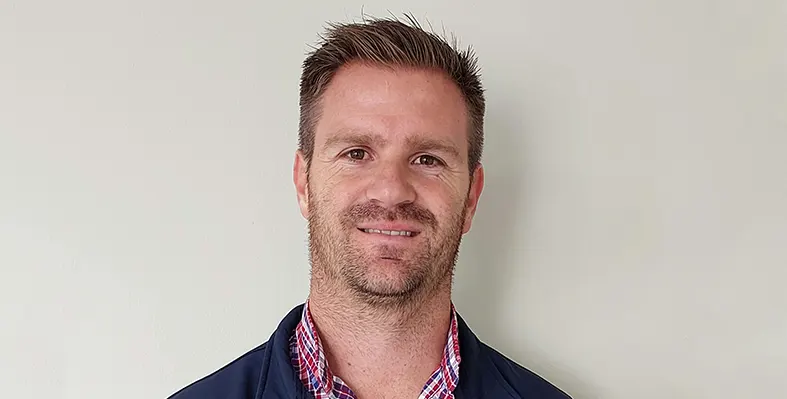
South Africa’s agricultural sector remains a vital contributor to both food security and employment. (Image Credit: WACO Modular)
South Africa’s agricultural sector remains a vital contributor to both food security and employment, with over 950,000 people working across farms nationwide
However, during critical planting and harvesting periods—particularly in remote or rural regions—many farms struggle to scale their infrastructure quickly and affordably. Traditional brick-and-mortar construction often proves too time-consuming, costly, or impractical, especially when speed and flexibility are non-negotiable. This is where modular infrastructure is reshaping the sector, offering fast, adaptable, and cost-effective solutions that align with the modern demands of agriculture. Prefabricated off-site and designed for rapid deployment, modular units can be installed within days, allowing operations to scale efficiently without significant downtime. More than just temporary structures, these buildings provide long-term value, as they can be relocated, reconfigured, or repurposed between seasons—for example, shifting from worker accommodation to storage or training facilities.
Designed to withstand tough environmental conditions, modular units are especially suited to rural farming contexts, requiring minimal site preparation while offering durability and low maintenance. They have become increasingly popular for use in staff housing, cold storage, mobile clinics, sanitation facilities, and maintenance workshops. Beyond meeting operational demands, modular infrastructure also enhances worker well-being—a factor often overlooked in seasonal planning. Comfortable, climate-controlled accommodation with access to sanitation and healthcare improves morale and productivity, encouraging seasonal workers to return year after year and reducing recruitment challenges. From a sustainability perspective, modular buildings also offer clear advantages, with lower on-site labour requirements, reduced material waste, and features such as solar readiness and smart climate monitoring. These innovations make it possible to extend essential services even to the most remote locations, all while reducing environmental impact. As agricultural operations grow more complex and face increasing pressure to adapt to shifting environmental and economic conditions, modular infrastructure offers a future-ready approach. It enables farms to remain productive, resilient, and competitive—whatever the season—by combining speed, adaptability, and sustainability in a single, practical solution.
Article by Zharn-Pierre Nel, Branch Manager at Waco Modular
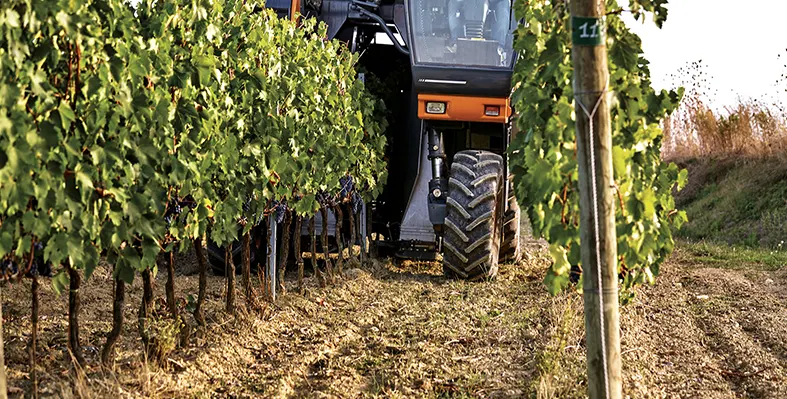
Utility tractors are compact, fuel-efficient, and easy to operate. (Image Credit: Balkrishna Industries Ltd.)
In today’s agricultural landscape, utility tractors—often called ‘wildcard’ tractors—remain one of the most sought-after and strategic choices for small to medium-sized farms
With power outputs ranging from 70 to 130 horsepower, these machines are designed to handle a wide array of tasks, from light fieldwork and transport duties to front loader operations in tight spaces such as barns, vineyards, and orchards.
Versatility is a cornerstone of utility tractors, and tyre choice must mirror this adaptability. That’s where Balkrishna Industries Ltd. (BKT) steps in. BKT offers customised tyre solutions, blending advanced technologies and modern compounds to deliver tyres that are reliable, durable, and fit for varied terrain and tasks.
Utility tractors are compact, fuel-efficient, and easy to operate—qualities that make them indispensable for day-to-day farming activities. Their ergonomic design guarantees comfort during extended operating hours, while their powerful traction and manoeuvrability allow productivity even on loose or uneven soil. Whether it’s ploughing, weeding, transporting hay, or navigating narrow barns, utility tractors offer unmatched flexibility.
BKT provides tyre models specifically designed for utility tractor use in order to support these demands. These include:
AGRIMAX RT 765 – Excellent for open-field use, offering even weight distribution, reduced soil compaction, and strong self-cleaning properties.
AGRIMAX RT 855 – A versatile option suitable for multiple terrains, delivering high traction and tear resistance. Ideal for tractors frequently moving between the field and the road.
AGRIMAX RT 657 – Reliable for both tillage and road transport, with select sizes suitable for grape harvesting. Noted for its comfort and fuel-saving design.
BKT continues to support evolving agricultural practices by developing tyre patterns that meet the real-world needs of utility tractor operators. With durability, performance, and operator comfort in mind, BKT’s solutions help farmers maximise productivity and manage agricultural resources more effectively.









